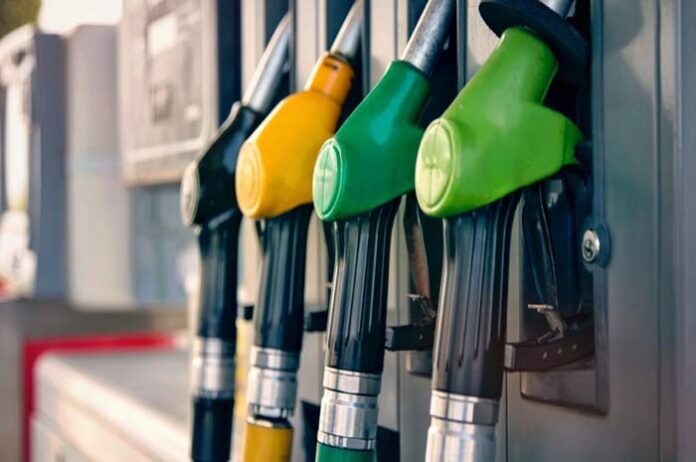ISLAMABAD: The government has doubled the petroleum levy on petroleum products to comply with the International Monetary Fund’s (IMF) demands for the revival of its loan programme.
According to the details, the PL on petrol has been raised from Rs10 to Rs20 per litre due to which the prices of petrol decreased just by Rs3.05. As of August 1, the price of petrol will be Rs227.19 per litre.
Similarly, the government also doubled PL on diesel, kerosene and light diesel oil from Rs5 to Rs10 per litre each. As a result, prices of diesel and kerosene was hiked by Rs8.95 per litre and Rs4.63 per litre, taking their new prices to Rs244.95 and Rs201.07.
However, the price of light diesel oil has gone down by 0.12 per litre, making its new price Rs191.32.
Earlier in the day, Finance Minister Miftah Ismail had affirmed that the government was about to fulfill the Fund’s last standing condition to release the much awaited loan tranche.
It may be recalled that on July 13, staff level agreement was announced by the IMF, however, the statement carried dour warnings of significant challenges ahead.
FY23 will see loan repayments of $21 billion and a projected current account deficit (CAD) of $12 billion. Coupled with building reserves of up to $5 billion, external financing needs could be around $38 billion.
According to the government, Pakistan needs $41 billion over the next 12 months to cover the CAD, amortisation payments and build forex reserve cover to three months of imports by end FY23. However, this figure could include payments in the month of June 2022 as well and may not reflect external financing needs for FY23.
It is pertinent to mention here that once the programme resumes following board approval, remaining import restrictions via bans and cash margin requirements as well as administrative processing delays will need to end; the State Bank will need to acknowledge the higher yields demanded by banks in T-bill auctions as a market reality rather than an avaricious practice to be stamped out; power and gas tariffs will need to rise sharply to curtail the continuing flow of circular debt. In short, more interest rate rises, further currency devaluation and higher utility bills await the country as programme implementation gets underway in earnest.




